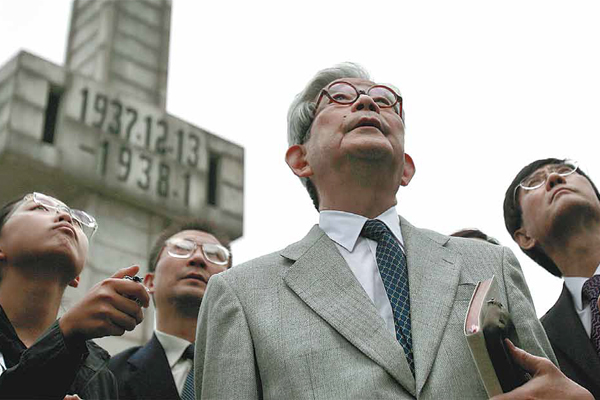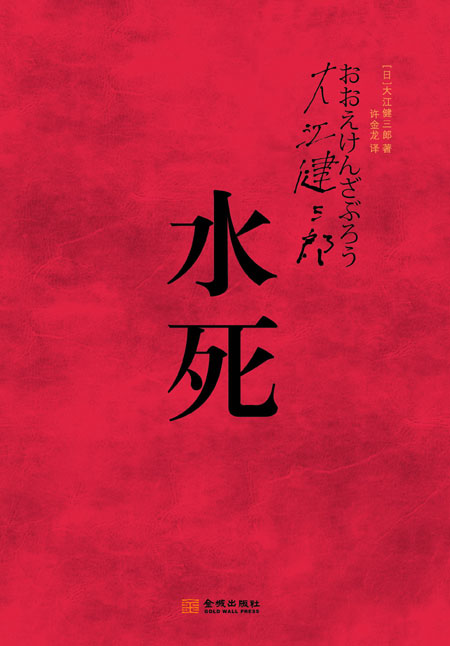

Japanese novelist Kenzaburo Oe's latest book is his most complex work to date. It evolved after he was forced to defend himself in court against accusations of libel. Mei Jia reports.
When Japanese Nobel laureate Kenzaburo Oe's latest novel, Sui Shi (Death by Water), was released in Chinese in mid-July by Gold Wall Press, the novel caused a buzz among Chinese writers and critics, being an unusually difficult read.
 |
|
Kenzaburo Oe has developed strong ties to China in recent few decades. He visited the Memorial for the Victims of Nanjing Massacre in 2006. [provided to china daily] |
Writer Yan Lianke, one of Oe's faithful readers, says he spent one day finishing Oe's award-winning The Silent Cry and two days on The Beautiful Annabel Lee Was Chilled and Killed, whereas in the three days he saved for Sui Shi, he was only able to finish half.
"The difficulty lies in Oe's complex structure," Yan says.
"It's also interesting to note that as Oe reached more maturity in the latter half of his career, he worked even harder to add profundity of his writing," he says. "He won't simply let things go."
The novel was conceived in court as he was defending an accusation of libel against him.
Oe was sued for libel for his essay Okinawa Notes by two retired Japanese military officers. In the essay he wrote about masses of Okinawan people who were coerced into committing suicide under the Mikado's will in 1945.
It was during the trial as a defendant that he got the earliest ideas for the novel.
 |
|
Kenzaburo Oe’s latest novel Sui Shi is published in Chinese. |
Sui Shi revolves around Kogito Choko, a writer who has a parallel experience with Oe, and his investigation of a legendary red suitcase to seek the truth about his father's death in a river.
Choko, a winner of an international literature prize, went back to his hometown in Shikoku forest to get the suitcase.
He believed the secrets in the suitcase would help him reconstruct a father's image for his new novel. But he became more confused when he discovered from the suitcase's contents that his father died in a shipwreck after a failed mission to kill the emperor Mikado, in an attempt to save Japan from being defeated in World War II.
Sui Shi's Chinese translator, Xu Jinlong, says the multiple story lines partly contribute to the challenge of reading his work. However, it is Oe's frequent cross-references to foreign writers and cultures that make the translation a real challenge.
Xu, a researcher with the Chinese Academy of Social Sciences, is a leading academic and translator of Oe's works. A winner of the prestigious Lu Xun Literary Prize for translation in 2007, Xu took the translation as a comparative study.
A Tokyo University graduate in French literature studies, Oe takes inspiration from French, English and German literature, to which he also pays great tribute through his own writing.
"I had to ask details and advice from relevant experts to be sure why and how Oe applies each figure, image or phrase," Xu says.
Though Xu has a longtime connection with Oe personally, Xu still found himself drained by the translation.
Xu has written a 20,000-word essay on cavemen to go with the translation because he finds it to be a key image in Oe's novel. He tracks down instances of cavemen in different languages and cultures, and determines that cavemen symbolize democratic spirit in Oe's book.
|
|
|